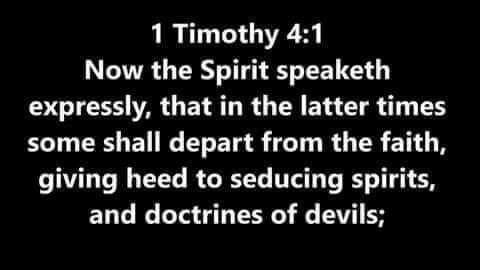101G
Active Member
Isaiah 44:6 "Thus saith the LORD the King of Israel, and his redeemer the LORD of hosts; I am the first, and I am the last; and beside me there is no God." me is one person, now this same one person.I know the truth.
But your rational is not good. Why?
You say " you have no clue what the term " WITH" means in identifying the Godhead. ONE PERSON...."
It does not.
1 John 2:1 "My little children, these things write I unto you, that ye sin not. And if any man sin, we have an advocate with the Father, Jesus Christ the righteous:"
An advocate who may be one person does not mean one person joined with another to make one.
An advocate is someone who supports or promotes a cause, policy, or the interests of a group, often by speaking or writing in favor of it. In a legal context, an advocate is a professional who represents and defends clients in court.
1 John 2:1 means that when we sin we have an advocate (Jesus, who is defending us) with the Father.... That advocate is Jesus Christ the righteous:"
You are correct Jesus is God and is 1/3 of the Godhead... but they are not one. The Godhead is 3. They are ECHAD
Isaiah 44:8 "Fear ye not, neither be afraid: have not I told thee from that time, and have declared it? ye are even my witnesses. Is there a God beside me? yea, there is no God; I know not any."
me and I is one person, "God", and God, the one person said he don't know any ... one or ... two beside him.... NOW HEAR THIS, "WITH" is synonyms to "beside"...... HELLO. are the light bulbs on?
did you UNDERSTAND? there is no one ..... "WITH" or "BESIDE" him, the one person GOD.
we don't need to draw any pictures? this is common sense deduction in reasoning.
101G say IDENTICAL ONE..... now is the wife IDENTICAL to the husband as ONE? no, but JESUS is..... understand the difference, from the Vine's Expository Dictionary of New Testament Words IDENTICAL. see Echad identify a numerical difference as one, in the Godhead that numerical difference is the same sort. listen to the Greek word that identifies the ECHAD of God in the term ANOTHER, LISTEN and LEARN.So then, how does “echad” directly relate to Christ and His ekklesia (as it plainly does to a marriage with a husband and wife becoming one-flesh)?
[ 1,,G243 G2087 ,allos heteros ] have a difference in meaning, which despite a tendency to be lost, is to be observed in numerous passages. Allos expresses a numerical difference and denotes another of the same sort;" heteros expresses a qualitative difference and denotes "another of a different sort."
now MT is the wife the same sort as the HUSBAND?
SORT according to Dictionary.com noun
1. a particular kind, species, variety, class, or group, distinguished by a common character or nature:
Synonyms: nature, character, rank, order, family, class
2. character, quality, or nature:
now MT .... is the wife nature is EXACTLY as the husband...... (smile) think before you answer. ....
can't wait to hear you answer.......... then you will Know the difference of the ECHAD in quantity and quality concering the Godhead.
101G.

